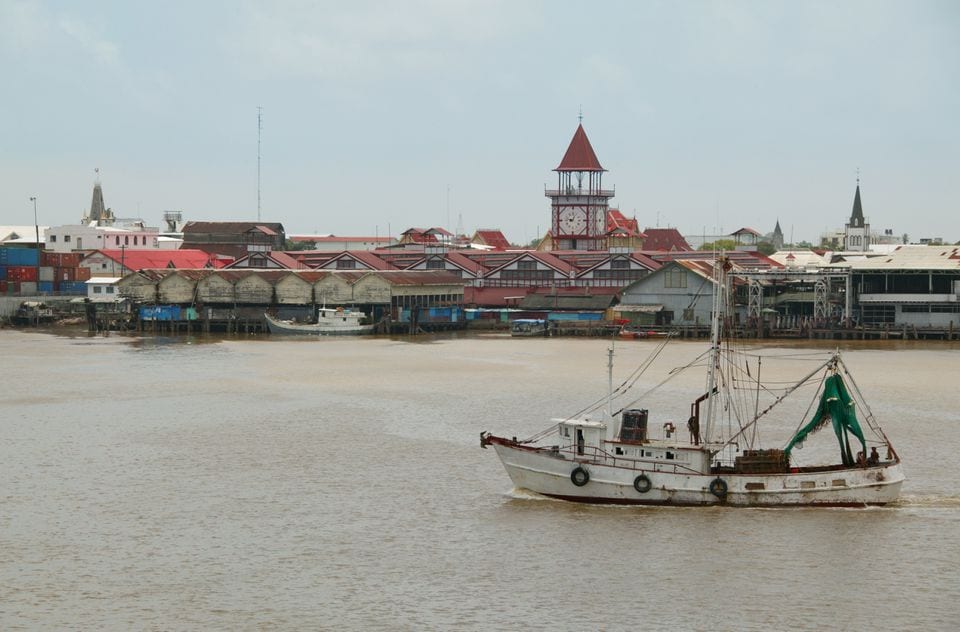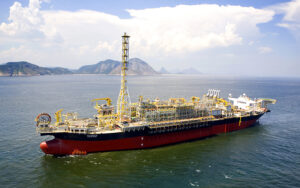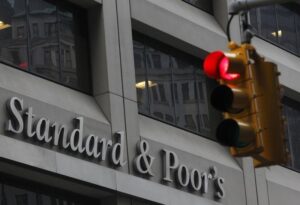
(Jamaica Gleaner, 17.Apr.2020) — Picture soaring sky-scrapers with glistening glass windows adorning cathedrals of steel that dominate the illuminated skyline. This image encapsulates the dreams of many developing countries which seek to achieve unparalleled development, especially upon discovery of vast resource deposits. Expectations for these nations are initially high, with various multinational organisations touting the country as the next powerhouse whose economy is unmatched in ferocity. However, this auspicious dream is often suffocated by an ensuing nightmare that chokes all optimism. This familiar tale is the unfortunate reality that has engulfed Guyana.
Recently, a lot of attention has been placed on the country due to the nation’s potential for exponential growth. The nation has become the newest petrostate with up to six billion barrels of oil reserves, making it the 12th largest member of the Organization of the Petroleum Exporting Countries (OPEC). The government anticipates revenue from the industry to be US$300m in 2020 alone. Despite these prospects, the country has been mired by electoral controversy that has tarnished its fledgling reputation as a transparent democracy. While possessing natural resources is an important factor for development, these resources can also contribute to a nation’s underdevelopment.
The recent election debacle highlights the long-lasting institutional challenges that have often plagued the country. For one, successive governments have long been perceived to have been accused of corruption which undermines many benefits accrued from its resources. Currently, Guyana ranks 85 out of 180 countries on the Corruption Perception Index. Despite making improvements in recent years, the shackles of weak institutions continue to plague the country.
Ethnic tensions also play a role as the major ethnic groups usually support opposing political parties. For example, Indo-Guyanese have historically supported the People’s Progressive Party/Civic (PPP), with the Afro-Guyanese supporting the incumbent People’s National Congress Reform (PNC). Despite the Afro-Guyanese population forming the largest demographic group, their share of the population has decreased over time. Thus, these elections have the potential to compound simmering local tensions and exacerbate existing institutional deficiencies that have existed since independence.
‘Disappointed But Not Surprised’
When speaking to Dr Lisa Vasciannie, lecturer of international relations at The University of the West Indies, she said she was “disappointed but not surprised” by the controversy. “With the oil discovery, the stakes have become higher with the two parties having more reasons to cling on to power … (although), there has always been an impetus for these inconsistencies and irregularities in elections,” said Vasciannie.
Additionally, she highlighted that Guyana’s proportional representation system cannot be ignored as it forms the “genesis” of the problem. “Guyana did not always have a system of proportional representation,” she explains. “The system was changed because the British Government thought that the then PPP, headed by Jagan, could not win if they had proportional representation … so they actually changed the electoral system to put that party at a disadvantage … It is even more so hard to ignore because voting is almost like a racial sensor in Guyana.” Hence, a flawed electoral system, weak institutions, ethic tensions and bitter party divisions have the potential to ignite the flammable concoction brewing in the nation.
This is the paradox that Guyana now faces. Essentially, the greatest opportunity for prosperity can become the greatest source of impoverishment. One does not need to look far to see the impact of this effect plaguing its neighbour, Venezuela. The boom in oil wealth in the mid-2000s was used to finance numerous anti-poverty and welfare programmes. However, this graceful improvement in living standards veiled consequential structural problems lurking beneath the surface, including growing debt and rising inflation.
This oil windfall further suffocated other industries, creating a dependence on oil. When prices soared, the economy flexed its muscles, but as it collapsed, the economy broke its back. Consequently, the fall in oil prices became the harbinger for economic collapse as the government could no longer ignore underlying economic problems by using oil wealth as smoke and mirrors.
Oil and democracy do not easily mix. According to Michael Ross, professor of political science at University of California Los Angeles, “No country with high levels of oil and gas income has successfully become democratic since 1960 and 2010.” From Libya to Angola, the explanation for this occurrence becomes apparent.
In his book, The Oil Curse: How Petroleum Wealth Shapes the Development of Nations, Ross explains that “Oil has kept autocrats in power by enabling them to increase spending, reduce taxes, buy the loyalty of the armed forces, and conceal their own corruption and incompetence,” because oil revenues are “unusually large, do not come from taxes, fluctuate unpredictably, and can be easily hidden”.
Oil Wealth and Economic Growth
Additionally, economists such as Jeffrey Sachs and Andrew Warner have found that oil wealth tends to reduce economic growth in authoritarian countries because these regimes have fewer incentives to increase the productive capacity of the private sector. As greater wealth is accrued from natural resources instead of from increased productivity, there is less incentive for governments to invest in human capital development.
In this instance, there are greater temptations for the benevolent shepherd to become a tyrannical butcher. Sometimes we expect the government to be a shepherd that leads the country to new economic heights. However, the shepherd, upon intoxication with his new oil wealth, becomes the butcher that neglects the people. All of these qualities add to the fuel that unleashes the consequences of the oil curse.
There are also expectations for Guyana to become less transparent and more laconic despite who occupies the presidency. The greater the revenue from oil, the more secretive is the administration. For example, Ross notes that four of Africa’s five most opaque governments, Angola, Chad, Nigeria, and Cameroon, are significant petroleum exporters. Conversely, the five most transparent countries, South Africa, Botswana, Zambia, Uganda, and Namibia, have little or no petroleum. While Guyana has attempted to implement strategies to reduce corruption, like establishing a sovereign wealth fund to invest profits, the recent election turmoil highlights the continuous temptation.
Nevertheless, there is hope for Guyana as the resource curse is not deterministic. Countries with robust democracies and strong institutions like Canada and Norway benefit from their natural resources with less susceptibility to corruption.
Therefore, strong institutions that emphasise competence and transparency are essential to fostering robust economic development, political maturity and social transformation. With the absence of forward-thinking policies and alternative sources of revenue, Guyana’s oil dream is only a nightmare shrouded in smoke and mirrors.
David Salmon is a first-year public policy and management student at The University of the West Indies. Send feedback to davidsalmon@live.com or columns@gleanerjm.com. Or follow him on Twitter @DavidSalmonJA.
***

